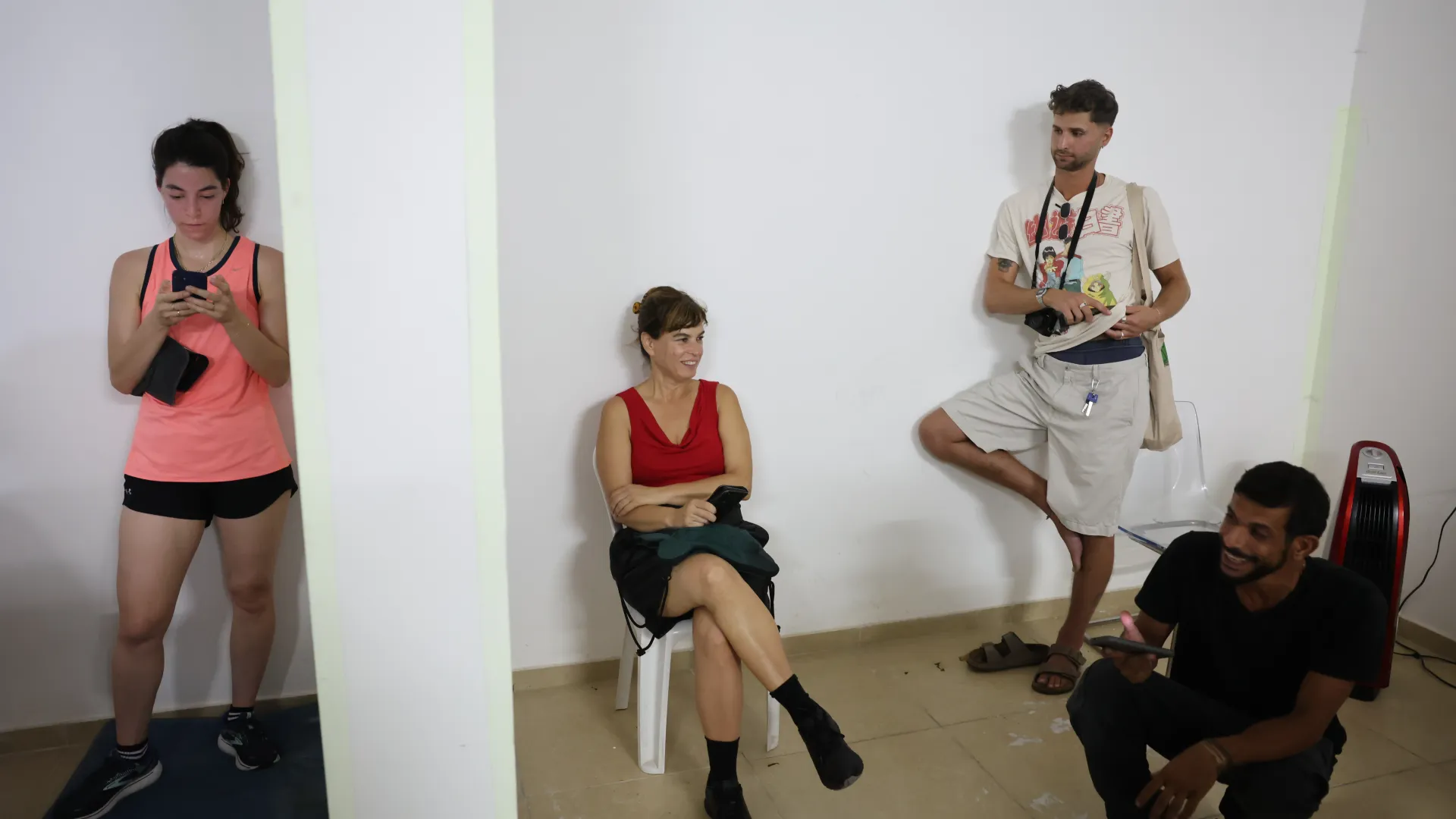
WafricNews- June 18, 2025
As Iranian missiles thundered across Israeli skies recently, the country’s residents scrambled for cover in reinforced bomb shelters. But for millions of Palestinian citizens of Israel—who make up over 20% of the population—those shelters were anything but safe havens.
In several cities and towns across Israel, reports have emerged of Palestinians being deliberately excluded from life-saving shelters by fellow citizens, exposing long-standing fault lines of systemic discrimination and social exclusion that deepen during times of war.
“I Just Wanted to Keep My Daughter Safe”
Samar al-Rashed, a 29-year-old Palestinian single mother from a predominantly Jewish apartment block near Acre, faced that harrowing reality firsthand. On a recent Friday night, with air raid sirens wailing, Samar clutched her 5-year-old daughter Jihan and rushed for the nearest bomb shelter.
“I didn’t take anything—just water, our phones, and my daughter’s hand,” Samar recounted, her voice trembling.
But as she approached the shelter, a man blocked her way.
“He heard me speaking Arabic to Jihan and slammed the door in our faces,” she said. “He told me, ‘Not for you.’ That’s all. Like we weren’t even human.”
Fluent in Hebrew, Samar pleaded with the man, but he refused to budge. Climbing back to her flat with missiles lighting up the sky, she realized she was not just endangered by the war, but also by the society she lives in.
Generations of Exclusion
The discrimination Samar faced is not an isolated incident. According to Adalah – The Legal Center for Arab Minority Rights in Israel – over 65 laws structurally discriminate against Palestinian citizens of Israel. The controversial Nation-State Law of 2018 even codified that only Jewish people have the right to national self-determination in Israel.
Under such policies, access to shelter becomes yet another layer of inequality. A 2022 State Comptroller’s report revealed that 70% of homes in Palestinian towns and villages lack reinforced safe rooms, compared to only 25% of Jewish homes.
Mohammed Dabdoob, a 33-year-old phone technician in Haifa, was also denied entry into a shelter when missile alerts rang out.
“I was shouting in Hebrew, banging the door,” he said. “No one opened. Seconds later, an explosion shook the street.”
Glass shattered, screams pierced the air, and Mohammed hid behind parked cars. When the shelter finally opened, he silently watched those inside emerge.
“There’s no safety for us,” he said. “Not from bombs. Not from the people.”
“You Can’t Come In Here”
Even in mixed cities like Lydd (Lod), where Palestinian and Jewish residents live side by side, disparities are stark. Yara Srour, a 22-year-old nursing student, attempted to shelter her family during the Iranian bombardment.
Her family lives in al-Mahatta, an older Palestinian neighborhood lacking proper permits and shelter infrastructure. When they rushed to the newer Jewish neighborhoods where reinforced shelters exist, they were turned away.
“We knocked on doors. People looked at us through peepholes and turned away,” Yara said. “My mother has bad knees and couldn’t even run. It was humiliating—and terrifying.”
She added that even Jews from poorer communities were excluded from these “modern” shelters, which appeared reserved only for middle-class Jewish families.
Trauma, Fear, and No Justice
For Samar, the incident left more than just a physical danger—it left emotional scars. That same night, an Iranian missile hit a home in Tamra, killing four women. Samar watched the smoke rise from her balcony.
“I didn’t bother calling the police,” she said. “There’s no justice. Not for us.”
She has since taken her daughter to her parents’ home in Daburiyya, where they now rely on a shared reinforced room. With sirens still frequent, she is considering fleeing to Jordan.
“I want to protect Jihan. But I also don’t want to leave my land. That’s the dilemma we live with: flee for safety or stay and be treated like outsiders.”
A Nation’s Promise, A People Forgotten
While Prime Minister Benjamin Netanyahu publicly stated that “Iran’s missiles target all of Israel—Jews and Arabs alike,” the lived reality paints a different picture.
Even before the conflict, Palestinian citizens were being arrested for social media posts expressing political views, while online incitement against them largely went unchecked.
“The state expects our loyalty,” said Mohammed. “But when we need protection, we vanish.”
Yara echoed that sentiment with a painful clarity.
“I want to save lives—I’m training to be a nurse. But how can I serve a country that won’t even protect my mother?”
For Samar, Yara, Mohammed, and many others, citizenship in Israel comes with conditions. When sirens ring, they are left at the mercy of not only falling missiles—but a nation unwilling to stand with them.
By WafricNews Desk
By WafricNews Desk


Comment
To post a comment, you have to login first
LoginNo Comments Yet...